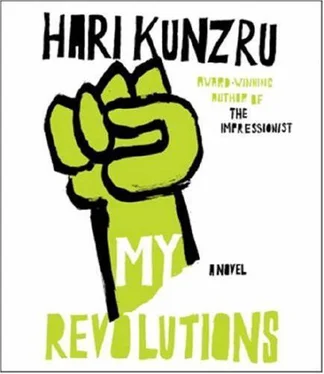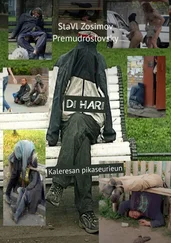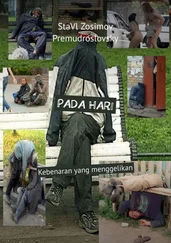Round and round. Miles’s question. What would freedom look like? That first university summer, instead of going home, I’d crashed on the sofa of a friend’s house in Muswell Hill. I found a temporary job at a small factory in Archway, which made control panels for industrial equipment. I had to sit at a bench, screwing glass dial-facings and Bakelite knobs to anodized aluminum plates.
It was easy enough work, and well paid. After a month I had enough money to travel, and set off for Europe. It was my first time abroad. I sat on the ferry’s rear deck, watching the coast of England recede behind me. In Ostend I showed my brand new passport to a smiling immigration official, who waved me through into Belgium with such warmth that I felt I’d been given the keys to the kingdom. Soon I was on a sleeper train heading south. I lay awake for hours in my upper berth, listening to the whistles and slamming doors of nighttime stations, the labored breathing of the middle-aged Dutch businessman in the bunk below.
I spent a month and a half sleeping in youth hostels or on station platforms, making fleeting alliances with other travelers to share a ride or a meal or an evening in a bar. I went to sleep in one country and was woken up by the border police of the next, fumbling blearily for my documents as another unfamiliar landscape took shape through the window. I wanted to travel far and fast and rarely stayed anywhere for longer than a night, passing through Berlin, Vienna, and Rome without really seeing them. When I arrived in a new place there was always a moment of choice, of having to find something to do with myself. I had very little money. I saw a lot of parks. I was most content listening to wheels on a track, the sound that confirmed I was going farther on, farther out. Finally I found myself swimming off a beach on a rocky Greek island, turning circles in the water, my world reduced to a dazzle of white light. If someone were to ask me when and where I was happiest, I’d describe that afternoon swim.
Circle the yard then back up to the threes, walkways above and below, a palimpsest of girders and wire netting. My cell had a single grilled window high up on the wall, made of little four-inch panes of muddy glass. Sit, stare, eat slops from a pressed metal tray. Nine-thirty sharp, lights out. Bad dreams on a narrow bed, cut through by the reveille bell. The best moment of the day was the first step onto the landing, where there was light and space, a distance on which to fix your eyes. At morning employment we sat, elbow to elbow, in a low-roofed atelier, dismantling old electrical equipment.
Radios, televisions. It was like being in the back of Parker’s, with my dad. Once we were given a pile of Second World War gas masks and spent a couple of days unscrewing the filters, cutting the glass eye panels away from the rubber. I never found out what happened to the parts we salvaged. I suspect they were just thrown away.
Lunch in the cell. Three slops in the molded metal tray and a cup of stewed tea. Afterward, locked in. For an hour or two after a meal, the sharp tang of boiled cabbage hung over the wing. Once every few days a trusty pushed a library cart along the landings. Usually it had nothing on it but religious tracts or textbooks, but for a while I lived with a tattered old copy of The Scarlet Pimpernel , its green cloth binding shiny with years of use. I’d never liked fiction, never seen the point in something that wasn’t real; Baroness Orczy’s class-ridden Paris did nothing to change that. Her heroes were blameless gentry and the common people were “human only in name, for to the eye and ear they seemed naught but savage creatures, animated by vile passions and by the lust of vengeance and of hate.” Disgusted, I started to imagine another book, the mirror-image of the one I was reading, peopled by greedy, vicious aristocrats and starving sans-culottes dreaming of a better world.
Harris, the man who sat beside me in the dismantling shop, liked to gossip. Who owed money or cigarettes. Who’d got a new radio or a rug in their cell. After the first few days I stopped listening, but the details of Harris’s life had got in by osmosis, the wife who was definitely waiting but hadn’t visited for the last three months, the mate who was going to give him a job when he got out. He kept offering me things — cigarettes, girlie mags, once a pair of shoes he said he didn’t want. I always refused, though I was tempted by the shoes. My prison-issue boots were molded to the shape of their previous owner’s feet, the heels worn down in a way that forced me to walk with a strange pigeon-toed roll.
After a couple of weeks I was transferred to cleaning duty, scrubbing floors, mopping spilled tea and soup off staircases and landings. After the dismantling shop it felt liberating, even luxurious. Pushing a mop my mind could leave my body. I barely heard the screws
shouting at me when I dawdled. Round and round. I rocked back and forth on my worn heels and dreamed of the island, of turning in the water, the horizon stretching away from me in an infinity of blue.
One night, in a room above a noisy taverna, I’d counted my money and realized I had barely enough to get back to England. I would have to leave the next day, or the day after. Three nights later I ate a dinner of dolmades and grilled fish and drank a bottle of red wine and three glasses of ouzo and decided to stay for good. What did I have in England? I’d get one of the crumbling little houses by the harbor and do it up. I’d learn to fish. I tried to talk to the taverna owner about it as he played dominoes with his friends at a back table. I was drunker than I thought. Angry with me for interrupting his game and unable to understand what I was saying, he waved me away. I insisted, grabbing his shoulder and babbling about fish and houses and a local girl I’d spotted outside the church. Eventually a couple of the players pushed me outside. Like a fool, I tried to fight them. Bruised and hung over, I left the island the next morning.
On the overnight train trip from Bari to Milan I was joined in my compartment by a man in a well-cut suit, who said he was from Rimini and worked in local government. We talked for a while, mostly about football. His English was stilted, but he knew the names of all the current Spurs squad, reciting them one by one, as if telling a rosary. He rummaged in his bag and pulled out a bottle of a nasty-looking orange drink. I sipped some, just to be polite. “Please, take more,” he said, smiling. “Please.” The next thing I knew, it was daylight, I was alone, and the train was pulling into a siding. The carriage was stiflingly hot. I stumbled out into the corridor and came face to face with a cleaner, who gesticulated and shouted at me in Italian. The train was completely empty. Sick and disoriented, I had to walk down the tracks back to the station. Only when I tried to buy a ticket for my next journey did I realize my camera had gone, along with the small amount of cash I had left in my money belt.
I ended up begging from a middle-aged English couple who were sitting at the station café. The wife believed my story. The husband patently thought I was a liar, but handed over enough money for a ticket to Calais, along with their address, “In case,” as he told me drily, “you intend to do the decent thing.” At Calais I had to beg again and this time wasn’t so lucky. I hung around in the ferry terminal for hours, approaching every likely-looking person. Are you English? Sorry to bother you . Eventually I was arrested. At the gendarmerie they checked my documents, searched me, and let me go again. By that time I hadn’t eaten for two days.
I was saved by a middle-aged homosexual who bought me a beer and a sandwich in the terminal café. Wretchedly I told him my story, and to my surprise he bought me a ferry ticket. On the crossing he fussed over me, treating me to more drinks and food. He had a racing green MG parked at Dover and I gratefully accepted a lift to London. Eventually we drew up outside a mews house in Chelsea and he said, enunciating pointedly, that he thought we should have a little cock tail together. I let him unload my pack from the boot, then staggered away down the street, while he tugged at my sleeve and swore at me in a sort of stage whisper so as not to wake the neighbors. I walked all the way to Muswell Hill and, after emptying my friend Alan’s fridge, lay down on his sofa and slept twenty straight hours, waking up with a start in the middle of the night in the deluded belief that I was still on a train.
Читать дальше












